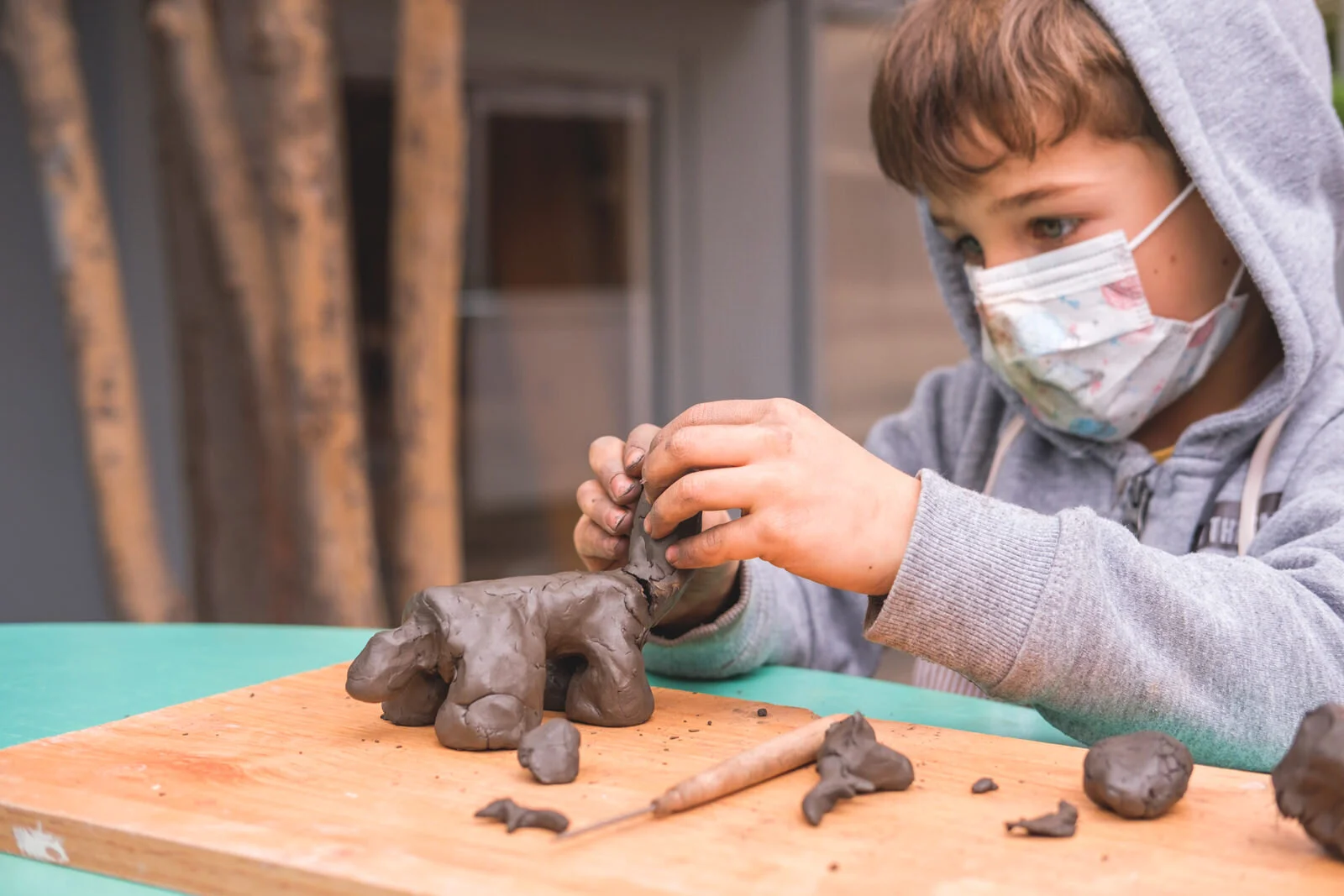
A Bilingual American Montessori School for Children 3 to 16
Essential Components of City Country School Education
The Why
Purpose
Montessori education is firmly in the tradition of developmental pedagogies educating for the self-actualization of the individual. In this view, an educated person is a person with the ability “to relate to knowledge in a positive, critical and productive manner” (Harpaz). A good life is a meaningful life with a true connection to the world and to others.
The How
Theory of Instruction
Montessori includes the rigorously prepared environment, the three-period lesson, close observation, concrete didactic materials, freedom of choice, freedom of movement, the three-hour uninterrupted work cycle, long works (or projects), going-out, an emphasis on community, independent, as well as collaborative work, trained Montessori adults, small group lessons, direct and indirect instruction, mixed- age groups.
The What
Curriculum
Montessori is a child-centered pedagogy designed to help children with their task of self-construction as they develop through different developmental stages, from childhood to maturity. City Country School provides a bespoke education and an environment prepared especially for the interests and abilities of each child.
Methods of Instruction
The Montessori pedagogy forms the foundation of our practice at City Country School, encompassing the philosophy, the curriculum and the methods of instruction that include:
The rigorously prepared environment
The three-period lesson
Close observation
Concrete didactic materials
Freedom of choice
Freedom of movement
The three-hour uninterrupted work cycle
Long works (which we call projects)
Going-out
Independent, as well as collaborative work
Small group lessons
Individual and group presentations
Direct and indirect instruction
Mixed-age groups
New Subjects & Enrichment Activities
City Country School is a Montessori school that is alive, evolving to meet the needs of the XXI century child. In the one hundred years since Maria Montessori founded her first school, the family, society and culture have all changed, in ways large and small; City Country School strives to take those changes, as well as subsequent scientific and educational research, into account in all areas of the school.
City Country School has evolved the curriculum. Its spiral, fully integrated structure has remained, while some subjects have needed reframing and/or the addition of more up-to-date content, some have gained a more central role. Montessori did not contemplate a school in two languages, but our day and age demands it. School is more complex than it was in Montessori's time, because our society is more complex.
City Country School includes other important subjects in the curriculum:
Aikido
Clay
Singing and Music
Free Symbolic Play (Arno Stern)
Scientific Experiments
Kitchen
Entrepreneurship
Permaculture
Prepared Environment
The Montessori prepared environment is an environment prepared especially for the interests and abilities of children at a particular stage of development, without any extraneous or distracting elements. Every part of the child’s environment can be an opportunity: a lost opportunity, or an opportunity that is maximized. If we keep foremost in our minds that a child is always learning, then we can understand that every moment is an opportunity to learn; the entire school must be a prepared environment: the hallways, the bathrooms, the dining room, the kitchen, the classrooms, the workshop, the outdoor areas.
Learning Through Contact
At City Country School we cultivate a way of knowing the world through direct contact with it through the senses, beginning in Children’s House where all the materials are concrete, tactile and attractive and where the largest section in the classroom is the Sensorial Area.
Projects
The emphasis on project-work as the children move into and through Elementary is simply to take Maria Montessori at her word. She describes the elementary child as intensely social, seeking to work collaboratively with their peers. She emphasizes the need for Elementary education to take the child out of the classroom: “The closed school… can no longer be sufficient for him… While the younger child seeks comforts, the older child is now eager to encounter challenges. But these challenges must have an aim” (Montessori, From Childhood to Adolescence). The children should “… consciously leave school having a definite and freely chosen aim in mind (Montessori).” At City Country School we call that aim a project.
A project is an inter-disciplinary, collaborative investigation of something in the real world. Project work requires students to apply classroom learning in other contexts and to bring the outside world into the classroom. Projects create the need to seek out essential content and to develop particular skills such as research, problem-solving, inquiry, critical thinking, effective communication, teamwork, collaboration, motivation and grit. Projects organize learning into purposeful action in the real world, structured around relevant, authentic questions or problems, producing real experiences and genuine artifacts.
Evaluations
A school’s objectives for its graduates are reflected in what the school chooses to evaluate and how those evaluations are made. At City Country School we seek a holistic view of the child, that includes the virtues and skills we find to be most important to cultivate and develop. The CCS evaluation has two parts: a descriptive narrative of the social, emotional and academic progress of the child, and a rubric of virtues/strengths, and skills. They are based on careful observations and ongoing assessments of the child and his/her work.
Ongoing assessments are designed to track the child’s progress in all areas. We put great emphasis on assessing each child’s progress in the skill of learning to learn. The ability to learn supports the four major life skills: the ability to do, the ability to know, the ability to be in community, and the ability to be in the world. At City Country School we teach children how to learn.
Children’s House
Learn about our bilingual Montessori program for children 3-6 years old.
Elementary
Learn about our bilingual Montessori program for children 6-12 years old.
Adolescent Community
Learn about our bilingual Montessori program for children 12-16 years old.









